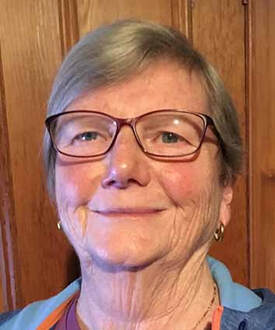
What result were you hoping for as an advocate for greater indigenous recognition?
The election campaigns on both sides were largely silent on Aboriginal policy. The Coalition would not have dared mount a fear campaign on the Uluru Statement from the Heart because it has 80 per cent support, according to reports. The Opposition was content to keep quiet, though they have pledged support for the Uluru Statement and for its Voice to Parliament.
What was your immediate response to the election result?
I felt crushed. We stayed glued to the TV, unable to go to bed, well after hope had drained and before the questions began.
But then they came. How did the polls get it so wrong? How could my fellow Australians have been so misled? How could they prefer a government divided against itself to a government with a progressive agenda? How have we become so committed to our own economic benefit rather than the common good? Was the ALP agenda too progressive? Was it in fact divisive? Did it pit southern against northern Australia? Did the fear campaign convince a majority of Australians that under Labor they would pay more taxes, even death taxes; lose their religious freedom; subject their investment properties to gross fiscal interference; provide just levels of service provision without paying for them through just levels of taxation; meet our Paris Agreement targets for carbon emissions despite opening up the largest coal mine in the world; keep our borders safe by maintaining vicious refugee policies for boat arrivals; and further reduce our foreign aid?
What have your thoughts been in the two weeks since then?
Since the election, we have seen the appointment of Ken Wyatt as Minister for Indigenous Affairs, the first Indigenous member of Cabinet and first Indigenous person to occupy the portfolio. A huge weight sits on his shoulders and he will need support from his community and from Cabinet to survive the pressures. He is advising a cautious approach towards constitutional recognition.
It has again been said that conservative governments have a greater chance than progressive ones to legislate socially radical policies. The reason is that the Labor Opposition will provide support, whereas if Labor mounted the legislation, conservative forces would oppose it. We have seen this effect with Howard and his gun control legislation and, over 50 years ago, the Holt Liberal Government’s referendum to count Aboriginal people in the census and to allow the Commonwealth Government to make laws for Aboriginal people.
My cause for optimism is that now may be the time, with Ken Wyatt in his role, Labor and the Greens in support, a more manageable cross bench holding the balance of power in the Senate, and even Morrison’s espoused Christianity, that the Government may be brave enough, or may be persuaded, to enact the intent of the Uluru Statement.
What might follow from this visionary development is a new trust in the skills, expertise and good sense of Aboriginal people in determining their own futures, the shape of their institutions, and the direction of their funded programs, with white bureaucrats, who swallow up the majority of tagged Aboriginal funds, getting out of the way.
Aboriginal Community Controlled Health Organisations already provides a model under the inspiring leadership of Pat Turner, and there are many other models working effectively. It’s a great pity the media doesn’t showcase them.
Will you continue your advocacy work or do you see it as a lost cause?
The Bass Coast South Gippsland Reconciliation Group will continue to argue for Aboriginal control in all aspects of their lives, and will work alongside the Aboriginal community wherever we can.
Marg Lynn is secretary of the Bass Coast South Gippsland Reconciliation Group.